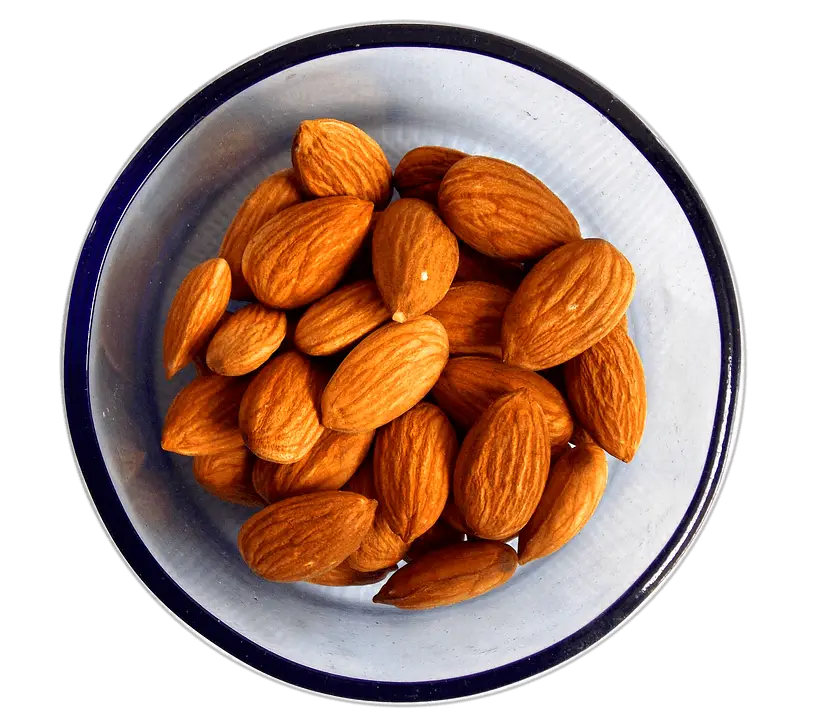Almonds might be bite-sized. However, these nuts come with a huge nutritional punch. They are an incredible source of a couple of minerals and vitamins, such as manganese and vitamin E. Also, they are a good source of calcium, protein, riboflavin, copper, and fiber.
According to a consultant and dietitian in Boston, Peggy O’Shea-Kochenbach, almonds are among the highest sources of protein when it comes to tree nuts.
But are almonds good for those with diabetes? Those with this chronic condition need to watch what they consume and try to follow a healthy and balanced diet to control their blood glucose and keep their heart healthy.
Here is everything we should know about almonds and diabetes.
Almonds and Diabetes – Are They Good for Us?

Almonds are nutritionally beneficial for most people, but they are extremely good for those with diabetes. O’Shea-Kochenbach says that almonds might help lower the rise in insulin levels and blood sugar (glucose) after meals.
In Horizon, researchers came to the discovery that the consumption of 2 oz of almonds was linked with lower levels of fasting sugar and fasting insulin. This is around 45 almonds.
However, in this study, the participants reduced their caloric consumption by enough to accommodate the addition of the almonds. They did this in order not to consume extra calories.
Another Healthline came to the discovery that consuming almonds might help increase insulin sensitivity in individuals who have prediabetes.
Health Benefits of Almonds
Having diabetes means having a higher risk of heart disease as well. The good thing about almonds is that they might reduce this risk.
It is like that since almonds are abundant in monounsaturated fat. This is the same kind of fat linked with olive oil for its benefits on the health of the heart.
The USDA, i.e., the United States Department of Agriculture notes that 1 oz of almonds has around 9 g of monounsaturated fat.
Although yes, nuts are a high-calorie snack; they don’t contribute to weight gain if we eat them in moderation. They contain healthy fats and make us feel full.
Magnesium and Almonds
Almonds are abundant in magnesium. According to some studies, dietary magnesium consumption might lower the risk of obtaining type 2 diabetes.
In one 2012 study, the scientists came to the discovery that long-term high blood glucose levels might lead to loss of magnesium through the urine.
Due to this, individuals who have this chronic disease might have a higher risk of magnesium deficiency.
Study on This Topic
According to this particular study, consuming almonds might help prevent the development of heart disease and diabetes. This study came to the discovery that including almonds in our diets might help treat type 2 diabetes.
This accounts for 90-95 % of all cases. The study was published in the Journal of the American College of Nutrition.
According to this study, almonds fight the condition which is related to physical inactivity and obesity and tackle cardiovascular disease.
The study suggests that following a diet rich in almonds might lower LDL-cholesterol levels and improve insulin sensitivity in those with pre-diabetes.
Prediabetes is a condition in which individuals have blood sugar levels that are higher than the normal ones, but these levels are not high enough to be listed as diabetes.
More About the Study
This study involved 65 participants with pre-diabetes, of them 17 were men and 48 were women. All participants were in their mid-50s.
The participants were divided into 2 groups. The group that followed an almond-enriched diet had a clinically notable reduction in LDL-cholesterol levels and more significant improvements in insulin sensitivity.
This is in comparison to the group that followed a nut-free diet. According to the lead author of the study, for those people with risk factors for specific chronic diseases, like cardiovascular disease and type 2 diabetes, this is promising.
It means that dietary changes might help improve these factors which may have a potential role in the development of the disease. Now that it’s clear it’s safe to consume almonds if we have diabetes, it’s time to ask how much should we consume.
How Many Almonds Should We Eat?
A couple of almonds can go a long way when it comes to filling us up. Make sure to stick to 1 oz serving. To be more precise, that is around 23 almonds.
The USDA notes that one oz of almonds has:
- Dietary fiber – 3.5 g;
- Protein – 6 g;
- 164 calories.
How to Avoid Mindless Eating
To avoid mindless eating, we should try to portion out our almonds in small plastic bags or containers. Some companies sell them in single-serving packages.
This is a fast-to-go option for busy days.
Include Almonds in the Regular Diet
In the grocery store, we will find different almond products like almond butter, almond milk, and different flavored almonds. However, when choosing an almond product, always read the Nutrition Facts label.
Be careful of the sugar and sodium which might come from specific flavorings. Also, be careful of the sugar and carb content in nuts that are covered with chocolate.
The good thing about almonds is that they are versatile, so there are different ways to include them in our diet.
Ways to Include Almonds in Our Diet
- Add almonds on top of a dessert or any frozen yogurt;
- Add almond butter on apple slices or toasted high-fiber, whole-grain bread;
- Add almonds to many entrees. Put almonds into a stir-fry, green beans amandine, salads, or on cooked vegetables;
- Stir almonds into grain side dishes such as rice;
- Eat whole almonds as a healthy snack;
- Sprinkle shave, slivered, or chopped almonds on dry oatmeal;
- Add one tbsp. of almonds in morning smoothies.
Conclusion
According to these studies, almonds are good for those who have diabetes. But, we should consult with our doctor about any change in our diet, and this includes adding almonds. Our doctor should know about any change in our diabetes management plan.
Bear in mind that even with almonds moderation is the key.
